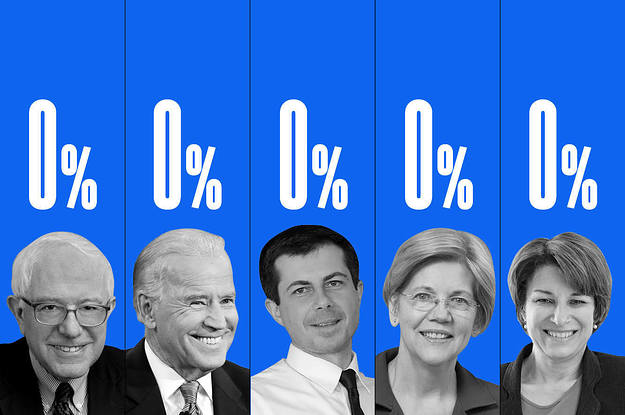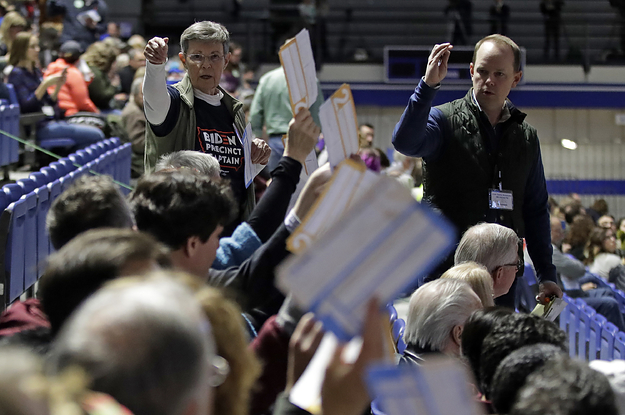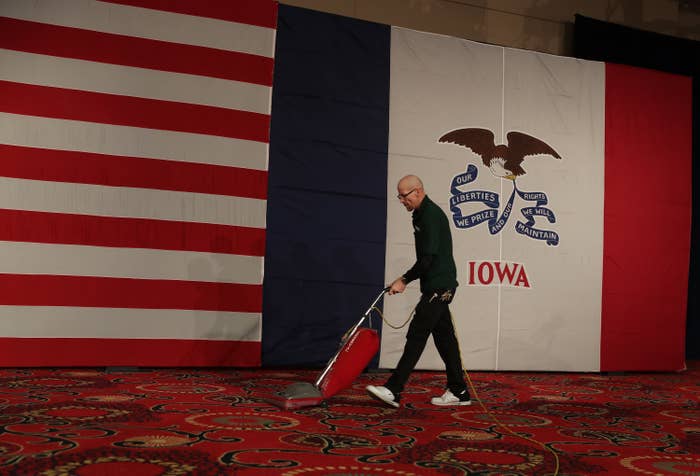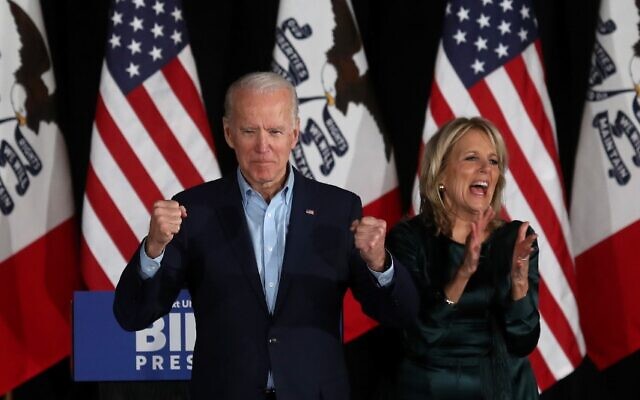Iowa caucus: News pundit caught calling Democrat event 'effing disaster' on hot mic

An MSNBC pundit was caught on air expressing that the Iowa caucus had turned into an “effing disaster” Monday night.
The moment was captured in a clip widely spread around social media on Tuesday. In the video, a male voice can be heard over the voice of another MSNBC presenter as they give an update on the caucus.
NO SEVEN SECOND DELAY
“Oh my god, what an effing disaster,” the voice said.
Rachel Maddow, Lawrence O’Donnell and Brian Williams were anchoring for the network at the time of the broadcast, as well as numerous pundits who appeared during the night.
While the slip up on live TV wasn’t a hallmark of professionalism, the sentiment of the disembodied voice wasn't unwarranted.
Issues with a voting app used by the state Democratic party are reportedly to blame for the delay in results coming out of Iowa.
During Monday night’s chaos, precinct captains took to Twitter, reporting that they’d been on hold with the state Democratic party for hours waiting to report their results. Many of them posted the results on the social media site, including explanations of how the delegate splits work.
Several of the candidates gave something resembling victory speeches as it became clear there would be no official results that evening.
Senators Amy Klobuchar, Elizabeth Warren and Bernie Sanders, along with Andrew Yang, former Vice President Joe Biden and former South Bend Mayor Pete Buttigieg, made speeches that suggested victory was just around the corner. For each of them.
Of all the speeches, Mr Buttigieg’s - which was the last to be delivered - was the most brazenly evocative of a victory speech.
“We don’t know all the results, but we know by the time it’s all said and done, Iowa you have shocked the nation," Mr Buttigieg said. “By all indications, we are going on to New Hampshire victorious.”
Mr Buttigieg walked back the comments on MSNBC the next day, suggesting instead that the evening was a “victory for the campaign” rather than an outright campaign victory.
Buttigieg, Sanders nearly tied as Iowa caucus results narrow
WASHINGTON (AP) — Pete Buttigieg and Bernie Sanders are nearly tied in the Iowa Democratic caucuses, with nearly all results counted in a contest marred by technical issues and reporting delays.
The race remained too early to call early Thursday with 97% of precincts reporting. Party officials were scrambling to verify the remaining results three days after Iowans gathered at caucus sites across the state to begin choosing which Democrat will take on President Donald Trump in November.
A new batch of results released just after midnight narrowed the margin between Buttigieg, the former mayor of South Bend, Indiana, and Sanders, the progressive senator from Vermont. Buttigieg has a lead of three state delegate equivalents out of 2,098 counted.
The deadlocked contest gives both Buttigieg and Sanders a burst of momentum as they seek to pull away from the crowded field. The nearly complete results show them leading Massachusetts Sen. Elizabeth Warren, with former Vice President Joe Biden and Sen. Amy Klobuchar trailing behind.
But the results in Iowa were muddied by the stunning breakdown of the caucus reporting process in a state that traditionally kicks off presidential nominating contests. Iowa officials initially attributed a delay in reporting results to technical problems with an app that precinct chairs were supposed to use to record votes, then to backlogs as those volunteers tried to call the party to submit their totals.
Even as the total number of results ticked up throughout the day Wednesday, obstacles remained. Some tally sheets were making their way to party headquarters in Des Moines through the mail, which contributed to the delay.
Much of the political world has already shifted its attention to next-up New Hampshire, which holds the first primary election in the Democrats' 2020 nomination fight on Tuesday. Both Buttigieg and Sanders are leading contenders there, as well.
The two men are separated by 40 years in age and conflicting ideology.
Sanders, a 78-year-old self-described democratic socialist, has been a progressive powerhouse for decades. Buttigieg, a 38-year-old former municipal official, represents the more moderate wing of the Democratic Party. Buttigieg is also the first openly gay candidate to earn presidential primary delegates.
Their strength in Iowa put them in the crosshairs of rivals as the race shifted to New Hampshire. Biden, who fell far short of expectations in Iowa, cast both Buttigieg and Sanders as risky choices for Democrats, given the former mayor’s relative inexperience and the senator’s descriptions of himself as a socialist.
Sanders is making his second run for the White House. He surprised many Democrats in 2016 with his strong challenge to Hillary Clinton, but entered the 2020 contest as a front-runner. He’s topped the field in fundraising, despite eschewing high-dollar donors.
Sanders and his supporters raised issues with the primary process after the 2016 election, prompting the Democratic National Committee to make changes that affected the Iowa reporting regulations.
As a result, Iowa released three sets of data from the caucuses: the tally of voter preferences at the start of the caucus; their preferences after supporters of candidates who reached less than 15% made a second choice; and the results of state delegate equivalents.
The final alignment results are used to determine state delegate equivalents, which is the metric the AP has long used to call the winner of the caucus. Democrats pick their nominee based on delegate totals.
With 97% of precincts reporting, Sanders is leading in the first alignment results and has a narrower edge in the final alignment.
Brendan Morrow,The Week•February 6, 2020

With the New Hampshire primary just five days away, we still don't have a winner in Iowa.
After technical issues with a new app and long phone delays held up any Iowa caucus numbers until almost a full day later, as of Thursday morning, 97 percent of precincts have reported their results.
But the race is still too close to call, as former South Bend, Indiana Mayor Pete Buttigieg holds 26.2 percent of the delegates, while Sen. Bernie Sanders (I-Vt.) has 26.1 percent.
Meanwhile, Sen. Elizabeth Warren (D-Mass.) is at 18.2 percent, while former Vice President Joe Biden is in fourth place with 15.8 percent. Biden has admitted he "expected to do better" in Iowa, while his aides weren't so diplomatic, with one telling Politico his performance was nothing short of a "disaster."
Speaking of disasters, the Iowa Democratic Party on Wednesday released a new batch of results that they soon had to clarify needed a "minor correction." The incorrect results suddenly showed a surge in support for former Massachusetts Gov. Deval Patrick (D), even though the Des Moines Register notes he wasn't even "actively competing for support" in Iowa. The Iowa Democrats soon issued correct results showing Patrick with no delegate equivalents.
CNN reports the Iowa Democratic Party is expecting to release the full results by Thursday morning.


















